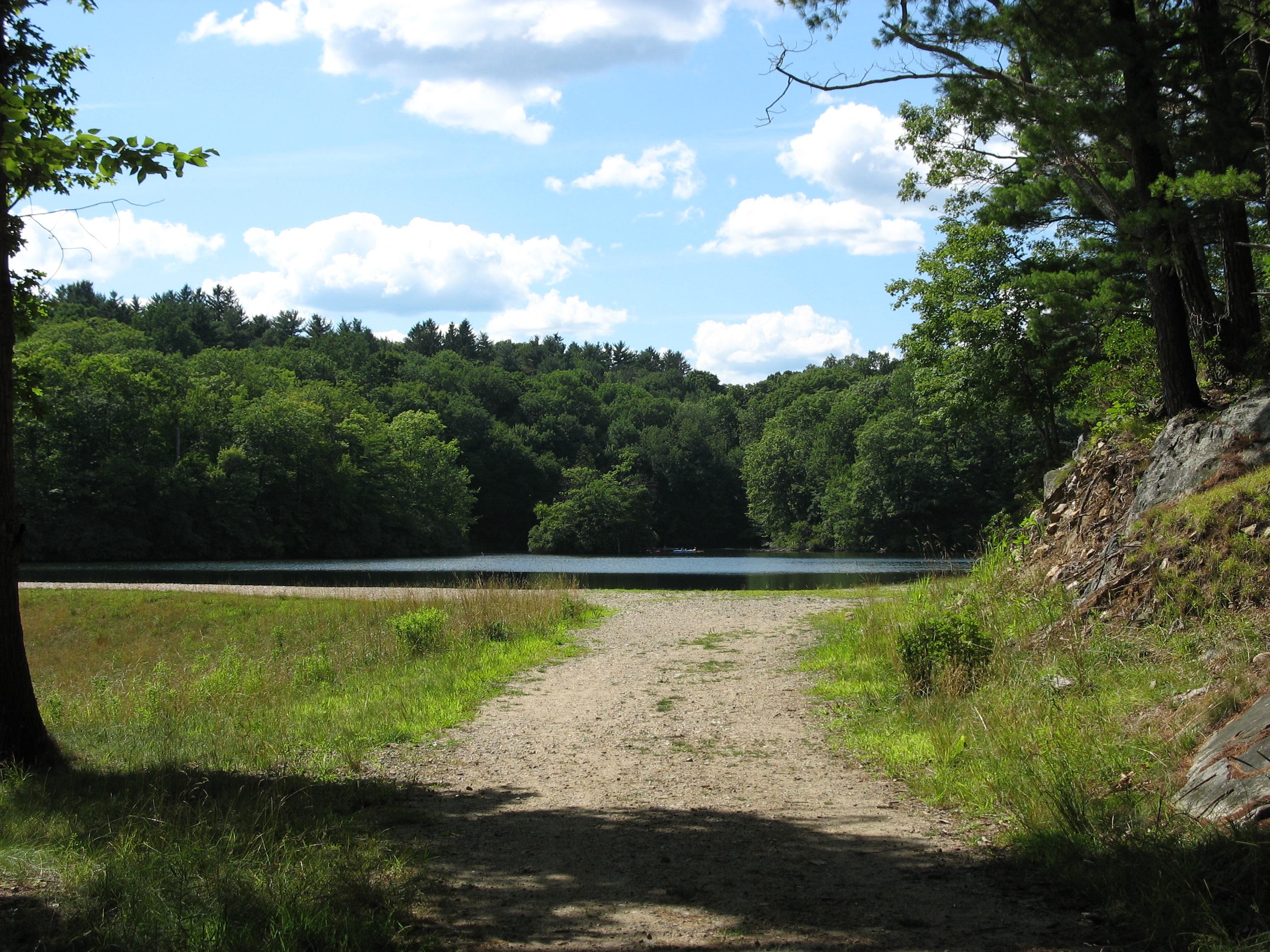|
Haslem V. Lockwood
''Thomas Haslem v. William A. Lockwood'', Connecticut, (1871) is an important United States case in property, tort, conversion, trover and nuisance law. The plaintiff directed his servants to rake abandoned horse manure into heaps that had accumulated in a public street, intending to carry it away the next day. Before he could do so, the defendant, who had no knowledge of the plaintiff's actions, found the heaps and hauled them off to his own land. The plaintiff sued the defendant in trover demanding payment for the price of the manure. The trial court held for the defendant, stating he owed nothing to the plaintiff. The plaintiff appealed and the Appellate Court of Connecticut held for the plaintiff, remanding the case for a new trial. The manure originally belonged to the owners of the horses that dropped it. But when the owners abandoned it on the road, it became the property of the man who was first to claim it. The Court found that the best owner after the act of ab ... [...More Info...] [...Related Items...] OR: [Wikipedia] [Google] [Baidu] |
Connecticut Appellate Court
The Connecticut Appellate Court is the court of first appeals for all cases arising from the Connecticut Superior Courts. Its creation in 1983 required Connecticut's voters and legislature to amend the state's constitution. The court heard its first cases on October 4, 1983. The Appellate Court was also a partial successor to the former Appellate Session of the Superior Court, a court established to hear appeals in minor matters (e.g., misdemeanors and minor civil matters.) Composition The Connecticut Appellate Court is composed of nine Appellate Court Judges. However, retired Judges of the Appellate Court and of the Supreme Court can still sit on Appellate Court panels, as needed. Retired Chief Justices Ellen Ash Peters, Francis McDonald, and William Sullivan continue to sit regularly with the Appellate Court, as do retired Justices David Borden and Barry Schaller, retired Appellate Court Chief Judges Antoinette Dupont and William Lavery, and a battery of other retired Appell ... [...More Info...] [...Related Items...] OR: [Wikipedia] [Google] [Baidu] |
Property
Property is a system of rights that gives people legal control of valuable things, and also refers to the valuable things themselves. Depending on the nature of the property, an owner of property may have the right to consume, alter, share, redefine, rent, mortgage, pawn, sell, exchange, transfer, give away or destroy it, or to exclude others from doing these things, as well as to perhaps abandon it; whereas regardless of the nature of the property, the owner thereof has the right to properly use it under the granted property rights. In economics and political economy, there are three broad forms of property: private property, public property, and collective property (also called cooperative property). Property that jointly belongs to more than one party may be possessed or controlled thereby in very similar or very distinct ways, whether simply or complexly, whether equally or unequally. However, there is an expectation that each party's will (rather discretion) with rega ... [...More Info...] [...Related Items...] OR: [Wikipedia] [Google] [Baidu] |
Tort
A tort is a civil wrong that causes a claimant to suffer loss or harm, resulting in legal liability for the person who commits the tortious act. Tort law can be contrasted with criminal law, which deals with criminal wrongs that are punishable by the state. While criminal law aims to punish individuals who commit crimes, tort law aims to compensate individuals who suffer harm as a result of the actions of others. Some wrongful acts, such as assault and battery, can result in both a civil lawsuit and a criminal prosecution in countries where the civil and criminal legal systems are separate. Tort law may also be contrasted with contract law, which provides civil remedies after breach of a duty that arises from a contract. Obligations in both tort and criminal law are more fundamental and are imposed regardless of whether the parties have a contract. While tort law in civil law jurisdictions largely derives from Roman law, common law jurisdictions derive their tort law from cus ... [...More Info...] [...Related Items...] OR: [Wikipedia] [Google] [Baidu] |
Conversion (law)
Conversion is an intentional tort A tort is a civil wrong that causes a claimant to suffer loss or harm, resulting in legal liability for the person who commits the tortious act. Tort law can be contrasted with criminal law, which deals with criminal wrongs that are punishable ... consisting of "taking with the intent of exercising over the Personal property, chattel an ownership inconsistent with the real owner's right of possession". In England & Wales, it is a tort of strict liability. Its equivalents in criminal law include larceny or theft and criminal conversion. In those jurisdictions that recognise it, criminal conversion is a lesser crime than theft/larceny. Examples of conversion include: 1) Alpha cuts down and hauls away trees on land s/he knows is owned by Beta, without permission or privilege to do so; and 2) Gamma takes furniture belonging to Delta and puts it into storage, without Delta's consent (and especially if Delta does not know where Gamma put it). A ... [...More Info...] [...Related Items...] OR: [Wikipedia] [Google] [Baidu] |
Trover
Trover () is a form of lawsuit in common-law countries for recovery of damages for wrongful taking of personal property. Trover belongs to a series of remedies for such wrongful taking, its distinctive feature being recovery only for the value of whatever was taken, not for the recovery of the property itself (see replevin). Overview Although actions in trover can be traced to the time of Bracton, and later Edward I of England, it became more clearly defined later during the reign of Henry VI of England, 1422–1461 and 1470–1471. Action in trover became a mature legal doctrine during the reign of Elizabeth I of England, 1558–1603. Early trover cases involved the keeping or taking of a bailment by the bailee (the person charged to hold the property with "ordinary care"). Others concerned the use of lost chattels found by another and determining who was the real owner. Early on, there was difficulty in dealing with situations where chattels held by a bailee were used by a ... [...More Info...] [...Related Items...] OR: [Wikipedia] [Google] [Baidu] |
Nuisance
Nuisance (from archaic ''nocence'', through Fr. ''noisance'', ''nuisance'', from Lat. ''nocere'', "to hurt") is a common law tort. It means that which causes offence, annoyance, trouble or injury. A nuisance can be either public (also "common") or private. A public nuisance was defined by English scholar Sir James Fitzjames Stephen as, "an act not warranted by law, or an omission to discharge a legal duty, which act or omission obstructs or causes inconvenience or damage to the public in the exercise of rights common to all Her Majesty's subjects". ''Private nuisance'' is the interference with the right of specific people. Nuisance is one of the oldest causes of action known to the common law, with cases framed in nuisance going back almost to the beginning of recorded case law. Nuisance signifies that the "right of quiet enjoyment" is being disrupted to such a degree that a tort is being committed. Definition Under the common law, persons in possession of real property (land ... [...More Info...] [...Related Items...] OR: [Wikipedia] [Google] [Baidu] |
Stamford, Connecticut
Stamford () is a city in the U.S. state of Connecticut, outside of Manhattan. It is Connecticut's second-most populous city, behind Bridgeport. With a population of 135,470, Stamford passed Hartford and New Haven in population as of the 2020 census. It is in the Bridgeport-Stamford-Norwalk-Danbury metropolitan statistical area, which is part of the New York City metropolitan area (specifically, the New York–Newark, NY–NJ–CT–PA Combined Statistical Area). As of 2019, Stamford is home to nine Fortune 500 companies and numerous divisions of large corporations. This gives it the largest financial district in the New York metropolitan region outside New York City and one of the nation's largest concentrations of corporations. Dominant sectors of Stamford's economy include financial services, tourism, information technology, healthcare, telecommunications, transportation, and retail. Its metropolitan division is home to colleges and universities including UConn Stamford ... [...More Info...] [...Related Items...] OR: [Wikipedia] [Google] [Baidu] |
De Bonis Asportatis
References Additional sources * * {{Latin phrases D ca:Locució llatina#D da:Latinske ord og vendinger#D fr:Liste de locutions latines#D id:Daftar frasa Latin#D it:Locuzioni latine#D nl:Lijst van Latijnse spreekwoorden en uitdrukkingen#D pt:Lista de provérbios e sentenças em latim#D ro:Listă de locuțiuni în limba latină#D sl:Seznam latinskih izrekov#D sv:Lista över latinska ordspråk och talesätt#D ... [...More Info...] [...Related Items...] OR: [Wikipedia] [Google] [Baidu] |
Manure In The Beamish Museum
Manure is organic matter that is used as organic fertilizer in agriculture. Most manure consists of animal feces; other sources include compost and green manure. Manures contribute to the fertility of soil by adding organic matter and nutrients, such as nitrogen, that are utilised by bacteria, fungi and other organisms in the soil. Higher organisms then feed on the fungi and bacteria in a chain of life that comprises the soil food web. History According to a Byzantine tradition attributed to Cassianus Bassus pig dung was generally not usable as fertilizer, except for almond trees. Similar views recorded by Columella were unrelated to the Islamic taboos of later centuries, though the medieval Andalusian writer Ibn Bassal and some later writers from Yemen also recorded negative effects of pig dung "burning" plants. Ibn Bassal described a sort of mixed manure with straw or sweeping mixed in as ', implying that was not composed of only manure. The sweepings from hot baths inclu ... [...More Info...] [...Related Items...] OR: [Wikipedia] [Google] [Baidu] |
United States Tort Case Law
United may refer to: Places * United, Pennsylvania, an unincorporated community * United, West Virginia, an unincorporated community Arts and entertainment Films * ''United'' (2003 film), a Norwegian film * ''United'' (2011 film), a BBC Two film Literature * ''United!'' (novel), a 1973 children's novel by Michael Hardcastle Music * United (band), Japanese thrash metal band formed in 1981 Albums * ''United'' (Commodores album), 1986 * ''United'' (Dream Evil album), 2006 * ''United'' (Marvin Gaye and Tammi Terrell album), 1967 * ''United'' (Marian Gold album), 1996 * ''United'' (Phoenix album), 2000 * ''United'' (Woody Shaw album), 1981 Songs * "United" (Judas Priest song), 1980 * "United" (Prince Ital Joe and Marky Mark song), 1994 * "United" (Robbie Williams song), 2000 * "United", a song by Danish duo Nik & Jay featuring Lisa Rowe Television * ''United'' (TV series), a 1990 BBC Two documentary series * ''United!'', a soap opera that aired on BBC One from 1965-19 ... [...More Info...] [...Related Items...] OR: [Wikipedia] [Google] [Baidu] |
Connecticut State Case Law
Connecticut () is the southernmost state in the New England region of the Northeastern United States. It is bordered by Rhode Island to the east, Massachusetts to the north, New York to the west, and Long Island Sound to the south. Its capital is Hartford and its most populous city is Bridgeport. Historically the state is part of New England as well as the tri-state area with New York and New Jersey. The state is named for the Connecticut River which approximately bisects the state. The word "Connecticut" is derived from various anglicized spellings of "Quinnetuket”, a Mohegan-Pequot word for "long tidal river". Connecticut's first European settlers were Dutchmen who established a small, short-lived settlement called House of Hope in Hartford at the confluence of the Park and Connecticut Rivers. Half of Connecticut was initially claimed by the Dutch colony New Netherland, which included much of the land between the Connecticut and Delaware Rivers, although the first ... [...More Info...] [...Related Items...] OR: [Wikipedia] [Google] [Baidu] |

.jpg)
.jpg)

